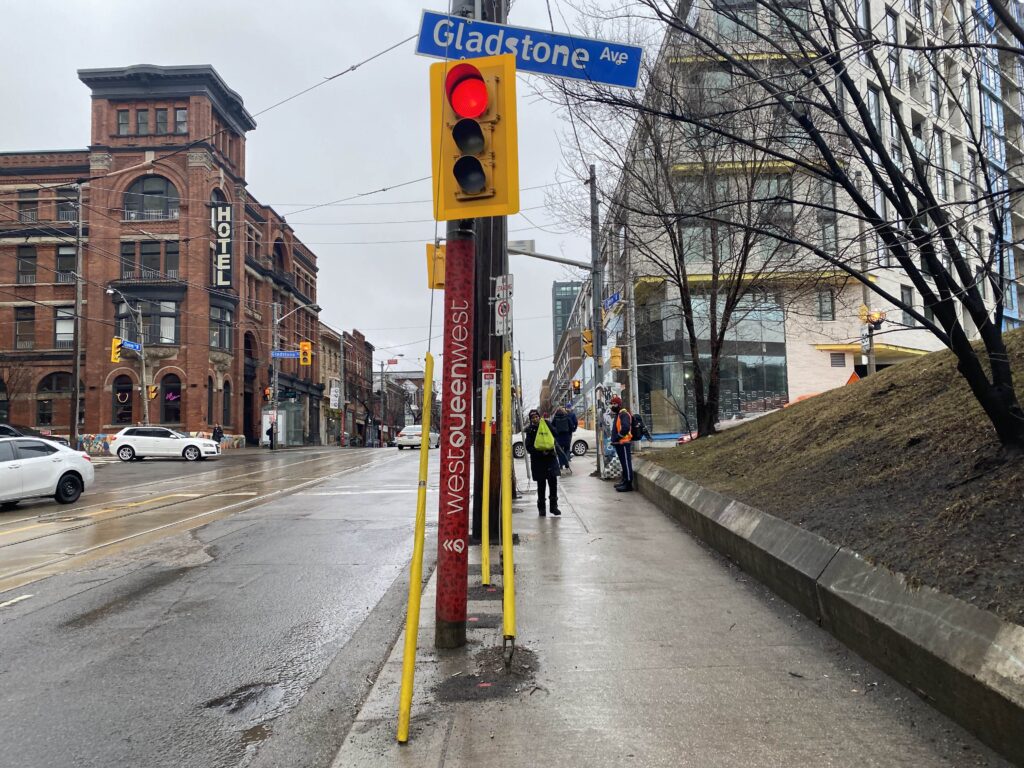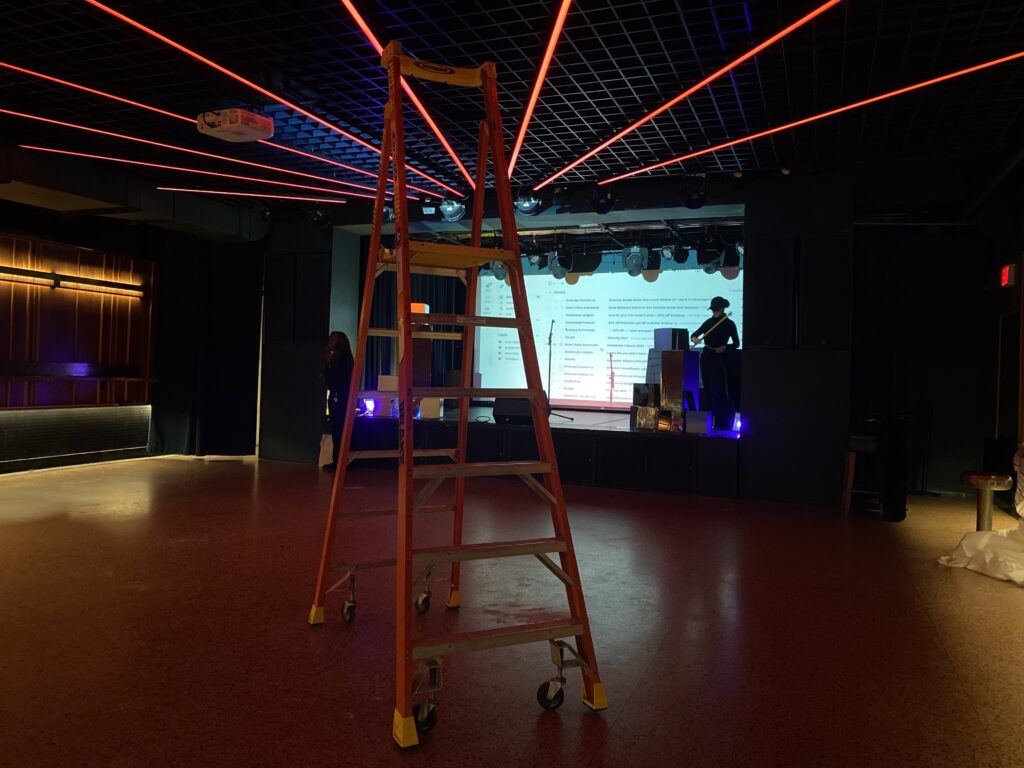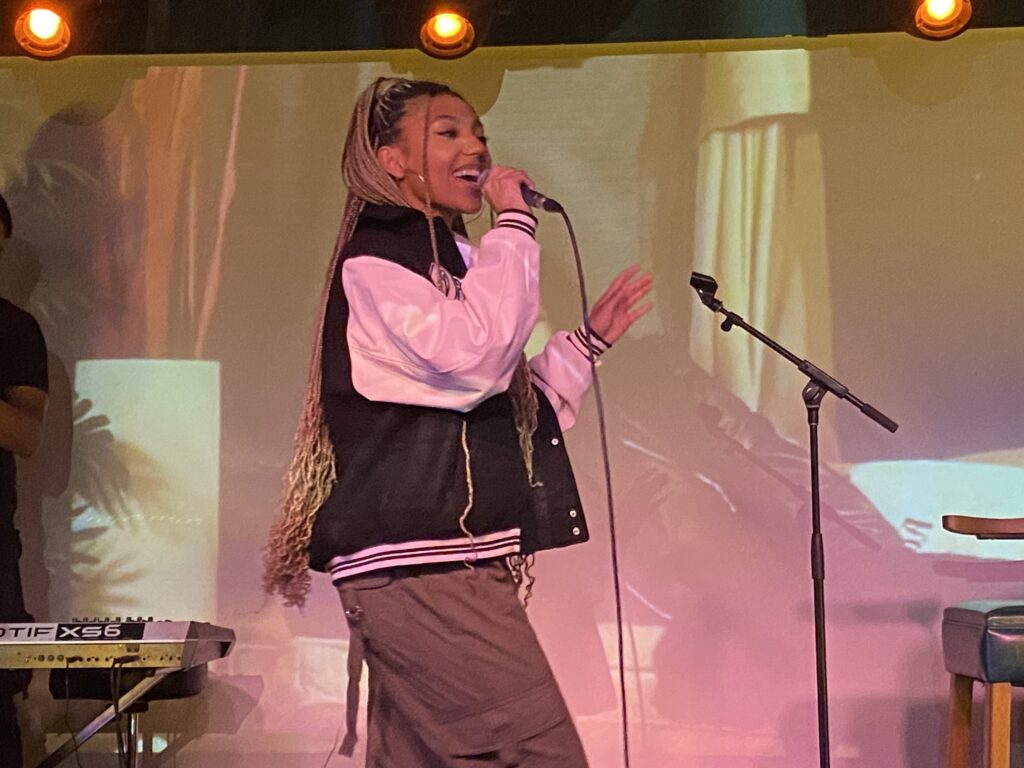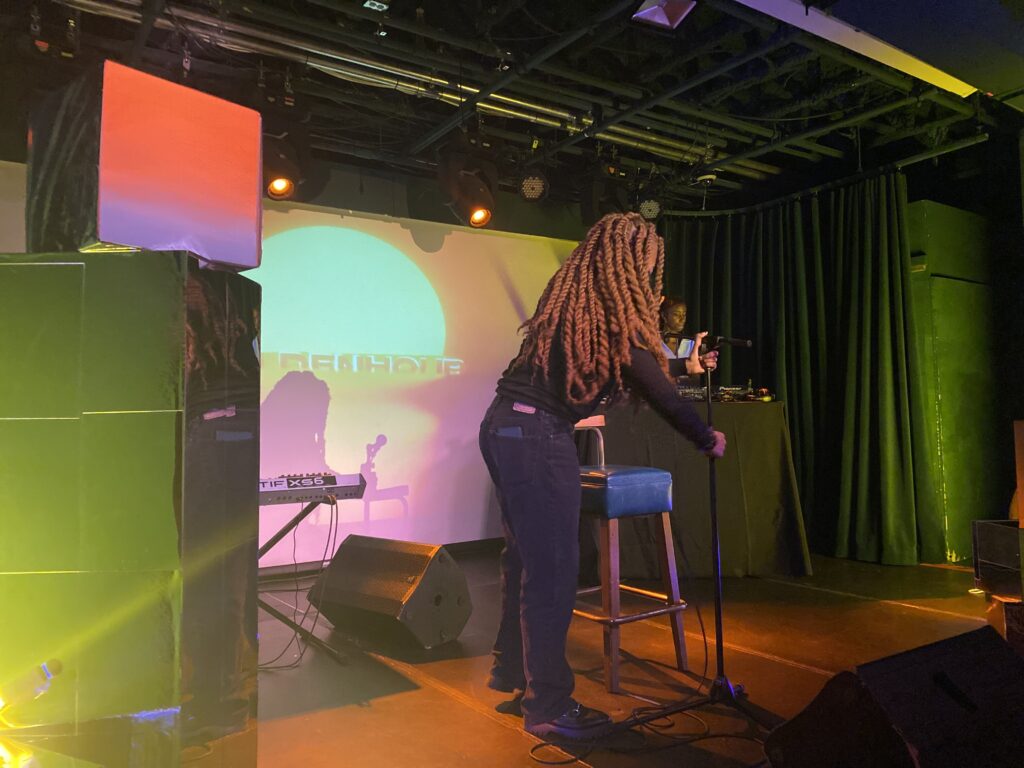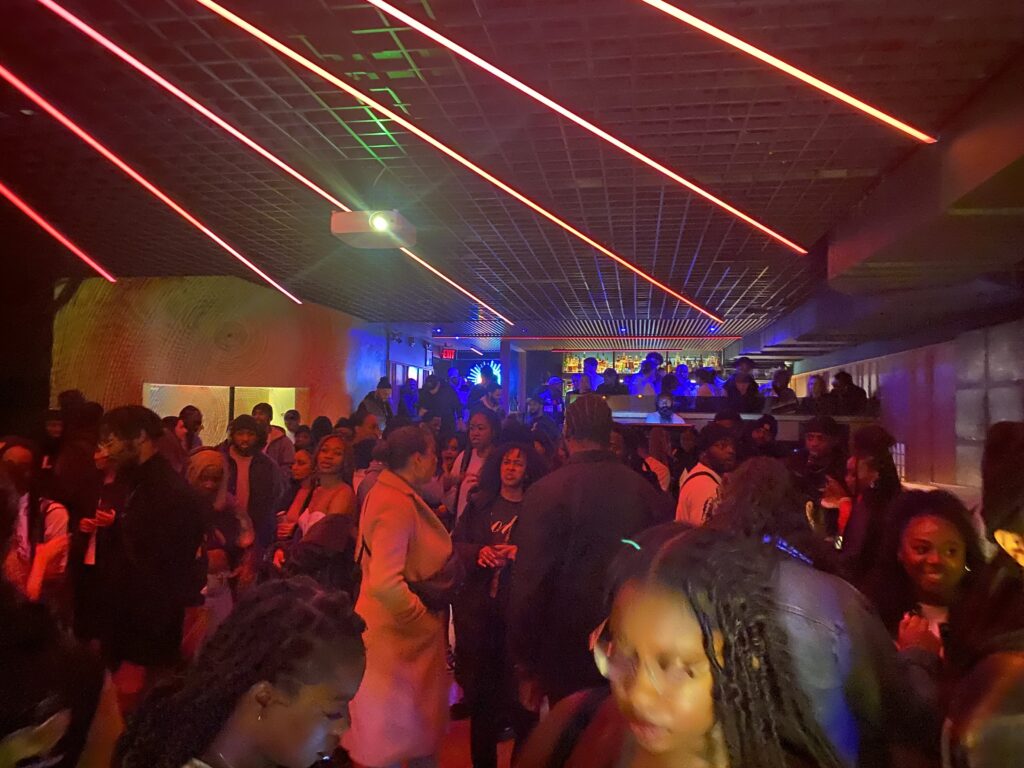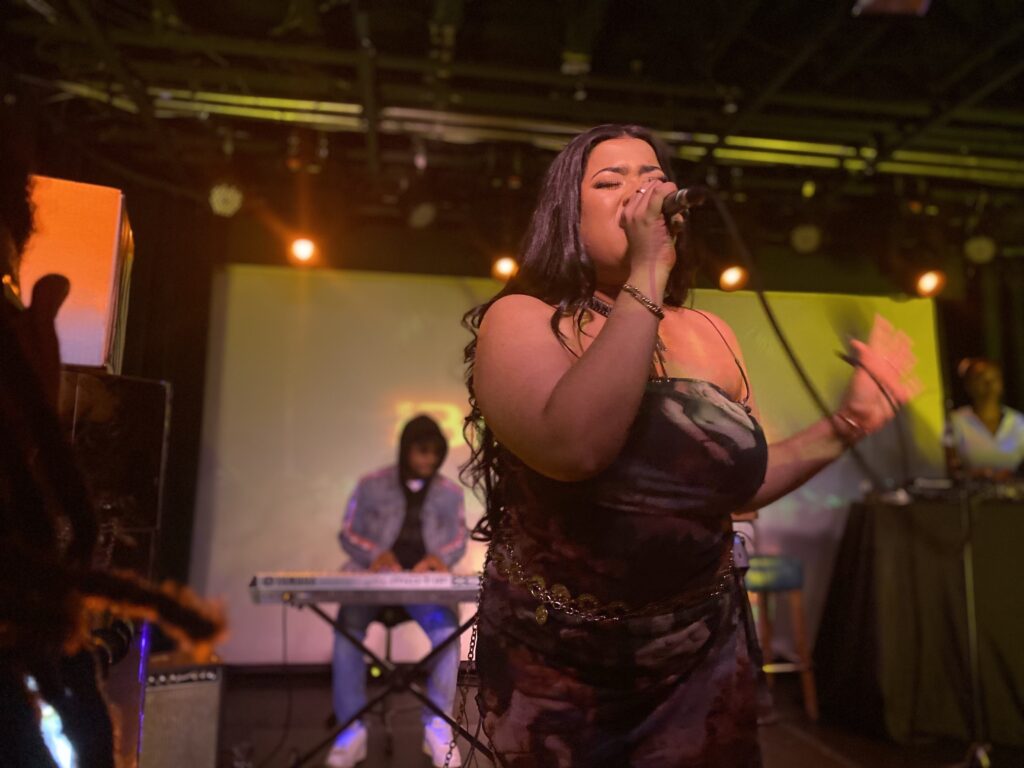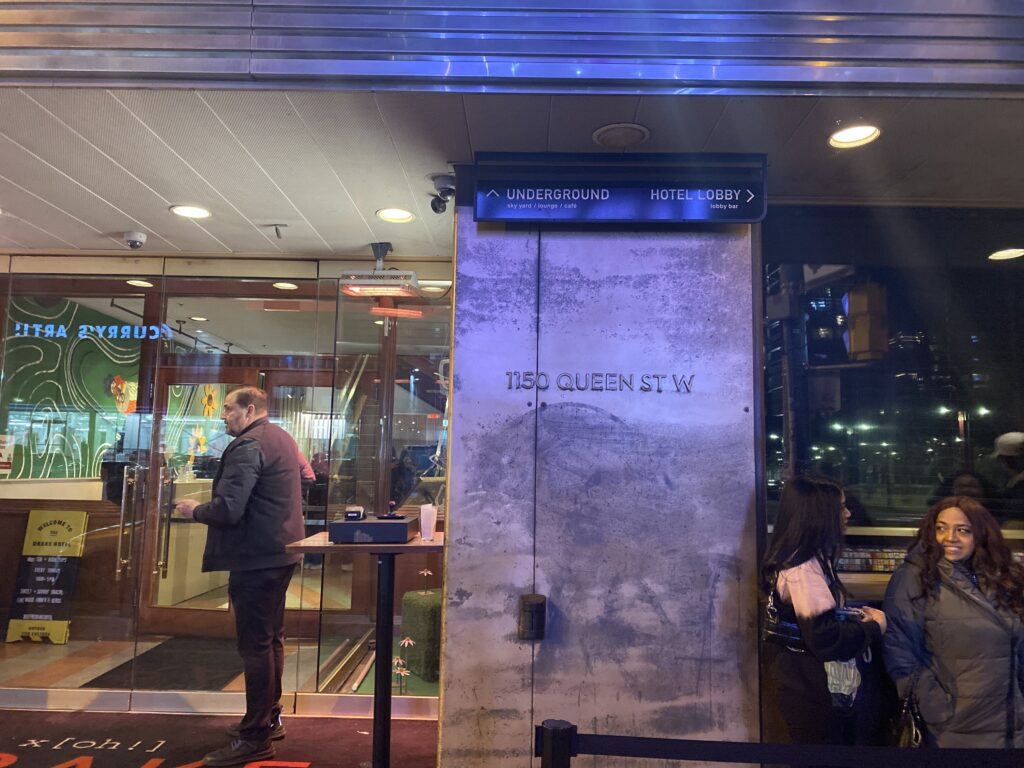By Alyssa Reid
Fifteen-year-old Malaika Khadijaa was nervous for her first performance. Her fingers flexed and closed in a fidgety manner but she masked it with a small smile and a deep breath as she repositioned herself in front of the mic. Her bright eyes stared at the crowd in front of her who was talking in hushed murmurs as the sound of equipment being adjusted filled the otherwise quiet room. Khadijaa’s yellow-long-sleeve shirt and blue high-waisted jeans glowed in the spotlight as did her hair which was straightened to her shoulders, courtesy of her mother, with little waves and two, tiny yellow sunflowers in her hair.
It was 2018 in The Axis Club, a smaller Toronto concert venue. Tall, pointed, blue- manicured fingers held the mic in a light grip as the live band started to play the opening tune for Daniel Caesar’s ‘Japanese Denim’. Khadijaa’s smooth, angelic vocals began to seep into the room followed by the soft but crisp sounds of the instruments behind her.
As she started to gain more confidence, she added effortless riffs and runs, truly making Caesar’s song her own. Staring at the impressed, proud expressions of the crowd in front of her, Khadijaa realized that music was what she was meant to do.
Khadijaa’s busy schedule brought us to Daniel’s Spectrum, an art and community cultural hub located in Toronto, a location that wrapped the interview in the musical ambience that seems to follow her wherever she goes.
Sitting in the center at a table, Khadijaa was on her phone, her headphones blasting music and a few books sprawled in front of her as she finished up some work. The hub space was filled with people lounging around, having conversations and a young gentleman playing the piano expertly by the entrance with music that filled the whole room.
The singer says that there is “Lots of blackness and multiculturalism on the outside but working on the inside, [the music industry] it isn’t diverse at all.”
“I’m very grateful to be unapologetically Black, African and Caribbean everywhere I go. I almost.. I don’t know if this will sound crazy… but I don’t mind making people feel uncomfortable with my Blackness because it’s not going to change. I’m going to be Black as soon as I walk in and as soon as I leave so just deal with it,” said Khadijaa.
Khadijaa said she is grateful to be living in the city compared to where she grew up in the town of Whitby, Ont., where she lived in a majority-white neighborhood. Although she went through many obstacles being a minority, she was adamant that her parents, a Kenyan mother and an Antiguan father, never let her forget where she came from.
She explained that where she comes from influences her daily life from the shows and films she watches, the books she reads, the way she dresses and, most importantly, the music she creates.
Malaika Khadijaa Goes Behind the Music
As she speaks about her first EP titled ‘18’, Khadijaa speaks about the extensive process of what it takes to produce just one song. Khadijaa also begins to touch on the new direction that process has led her to.
Today, Khadijaa proudly dons large, brown Senegalese twists, a popular protective style for Black women’s hair, wrapped in a bun on top of her head. Africa, her homeland, is kept close to her chest in the most literal sense: small, golden and hanging from her neck on a chain.
Fresh out of high school in the midst of a global pandemic, Khadijaa had a lot of pent-up feelings and used her music to express them, starting with ‘Story’, a song about rewriting her narrative. Who she wants to be now and not being influenced by her past, Khadijaa released three other singles, all leading up to her first EP, titled ‘18.’
“I feel like when I’m writing my music, those are moments where I’m most vulnerable, where I’m most free, and when I’m most honest,” said Khadijaa, “I want people to feel how I felt when I was writing.”
Released in 2021, ‘18’ consists of five songs and enthralls you with calm, R&B vocals and instrumentals including inspirations from Khadijaa’s culture with soft chants in Swahili. It takes you on a journey starting from wanting to let go of everything that you were conditioned to be or thought you were to change and evolve and ending with accepting the change and what comes with it.
When I asked if a full-length album was in the works, the R & B artist said, “I feel like that will be the last one I make.”
Khadijaa says that she is continuing to experience music from all sides of the industry and including taking a back seat from being in the spotlight.
These days she’s focusing her energy on doing live event production for her agency, Manifesto, where she helps in producing the shows, booking talent, DJs and venues and essentially, “Seeing who in the city is making moves and what fits at the time.”
I got to witness Khadijaa, the festival producer, for myself at her first-ever live event that she curated.
At The Drake Underground, one of Toronto’s top music venues, Khadijaa put together a cozy, R & B live event titled, ‘Golden Hour,’ featuring local up-and-coming Toronto-based artists Benita, Rhyan and Luna Elle.
Hours before the event even started, Khadijaa was running around putting the finishing touches on anything that needed to be done, communicating with set designers, the DJ and meeting the needs of the artists during their soundcheck, all while still appearing calm to all of us. She says she enjoys the thrill of not knowing what’s going to happen next and having to be at the ready.
After the soundcheck, I barely got to speak to Khadijaa but her peers and colleagues helped to fill in some of the gaps in her story.
“I’ve known Malaika for a while and I’ve worked with Manifesto before so it’s amazing to see her create her first- ever live event and be able to be a part of such a big moment for her,” said Toronto-based pop and R&B singer, Benita.
Gradually, the cozy venue became a lot cozier as more people started to make their way to the floor in front of the stage until the venue was full all the way to the top step next to the entrance and the bar. The lighting of the venue was dimmed in sunset pink, fitting the Golden Hour vibe very well.
Between performances of smooth, soulful and emotive vocals by the artists who brought a dynamic range of depth and emotion to their performances, the DJ filled in the between times with music of the Black diaspora ranging from R&B to Afrobeats to Reggae to Rap to Pop. The crowd behind me resembled the same diaspora. A plethora of diverse fans, from all over Toronto who came together to simply enjoy music and have a good time in a safe and fun space provided by Malaika Khadijaa.
Journey of the Golden Hour
“You can sit back and watch what you created in a way, how the artist is feeling, how the artist is giving away their music, how the audience is taking it in. It’s a really beautiful exchange.”

